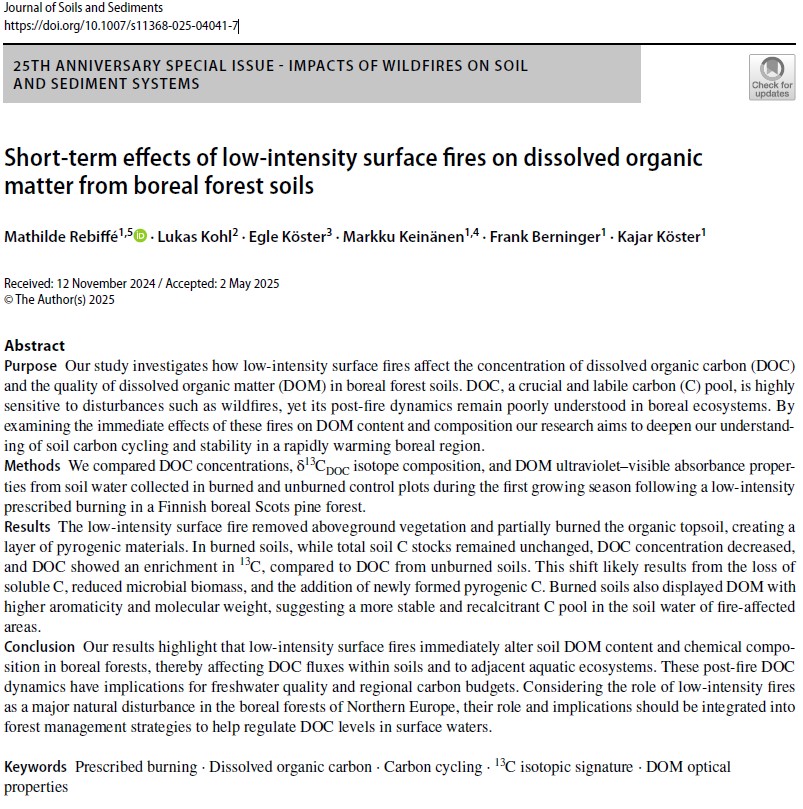New paper dealing with low-intensity surface fires
We’re pleased to announce the publication of our new paper, “Short-term effects of low-intensity surface fires on dissolved organic matter from boreal forest soils”, in the Journal of Soils and Sediments.
In this study, we investigated how low-intensity surface fires affect the concentration and quality of dissolved organic matter (DOM) in boreal forest soils. We focused especially on dissolved organic carbon (DOC), which forms a highly reactive and mobile fraction of soil carbon. While DOC plays an important role in both soil and aquatic systems, its short-term response to fire in boreal ecosystems remains poorly understood.
Our results show that even mild fires can significantly change both the quantity and chemical properties of soil DOM. These changes influence how carbon moves through soils and into nearby streams or lakes. Such shifts may affect water quality and have downstream effects on aquatic ecosystems. In addition, altered DOM dynamics may contribute to changes in regional carbon balances, especially in the context of increasing fire frequency in the north.
Low-intensity surface fires occur naturally and play an increasing role as a management tool in boreal forests. Researchers and managers need to understand how these fires shape belowground processes to design sustainable fire and water management strategies. Our findings emphasize the need to explicitly include fire impacts on DOM and DOC in ecosystem models and policy planning. It is essential while working to protect soil carbon stocks and ensure freshwater quality.
This publication also marks a significant milestone for our team. It is the first scientific article by PhD researcher Mathilde Rebiffé, and it will form part of her doctoral thesis. We warmly congratulate Mathilde for this excellent achievement and contribution to the growing field of fire-soil interactions.
